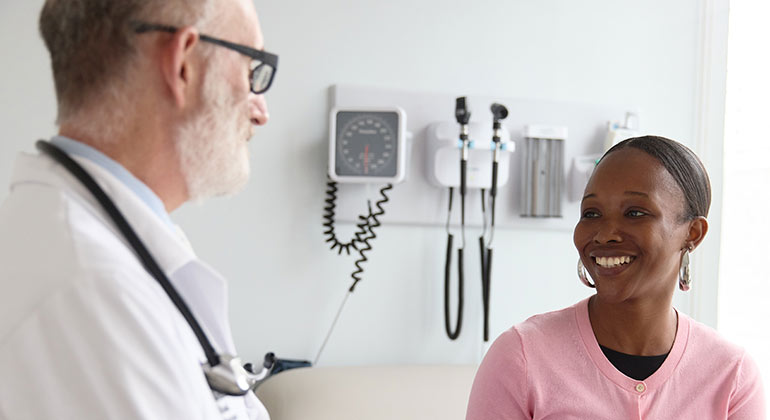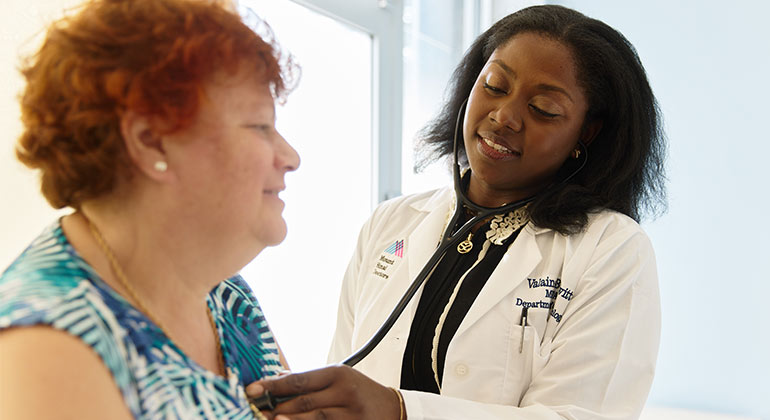

Mount Sinai Fuster Heart at Mount Sinai Doctors-Flatbush
Mount Sinai Fuster Heart at Mount Sinai Doctors-Flatbush provides state-of-the-art heart care, close to home in southern Brooklyn. Our cardiologists bring the expertise of Mount Sinai Fuster Heart Hospital to southern Brooklyn.
Our 5,000-square-foot location, with parking, provides all of your cardiac needs onsite. Our staff consists of high-quality, board-certified cardiologists leading an experienced care team, including a nurse practitioner, medical technicians and support staff. We take a personalized approach to patient care, take the time to learn about your needs and concerns, and encourage you to ask questions during your visit. The compassion of our cardiology team is matched by our skills in accurate diagnosis and providing comprehensive treatment plans for heart conditions.
Mount Sinai Fuster Heart at Mount Sinai Doctors-Flatbush includes the following services:
- Electrocardiogram – An electrocardiogram, also called an ECG or EKG, is a diagnostic test that monitors and records the electrical activity generated by your heartbeat. It can detect irregular heart rhythms, called arrhythmias, and other heart conditions.
- Echocardiogram – An echocardiogram is a diagnostic test that uses ultrasound (sound waves) to view the function of the heart valves and the pumping of the heart muscle. Echocardiograms can detect heart defects, heart muscle damage, and other conditions.
- Stress Testing – A stress test monitors your heart function while you exercise, usually on a treadmill or exercise bike. It is typically used to determine if there are blood flow problems with your heart (coronary artery disease), which can cause a heart attack. A stress test can also detect heart rhythm conditions. If you have symptoms of chest pain or shortness of breath and an exercise stress test did not determine the cause, your doctor may recommend a higher level of stress test, called a nuclear stress test, which uses a special dye and camera to view blood flow in your heart during exercise or at rest.
- Arrhythmia Monitoring – If you have been diagnosed with an abnormal heart rhythm, or arrhythmia, our cardiologists may recommend a wearable monitoring device to record your heart rhythm over a period of time.
- Carotid Doppler Testing – A carotid Doppler test uses ultrasound waves to detect narrowing of the carotid arteries in the neck, which if present can drastically increase your risk of having a stroke. This non-invasive test shows our cardiologists if you are getting normal blood flow to the brain, or if treatment is necessary to reduce your stroke risk.
- Vascular Testing – Our staff uses ultrasound to diagnose blood flow problems in your veins and arteries. It is a very important tool in checking for blood flow conditions in the arms and legs (peripheral vascular disease), which can cause pain in the extremities, can lead to amputation, and increases your risk of a stroke.